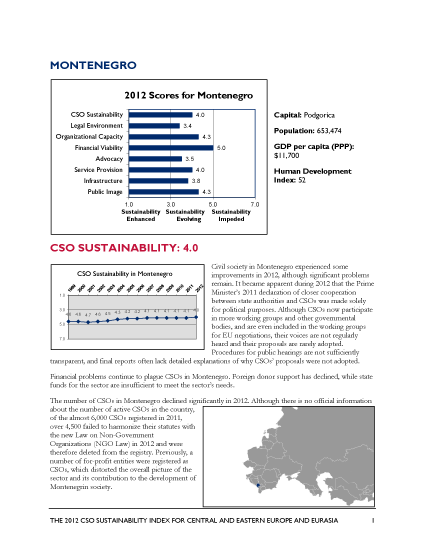CSO SUSTAINABILITY: 4.0
Civil society in Montenegro experienced some improvements in 2012, although significant problems remain. It became apparent during 2012 that the Prime Minister’s 2011 declaration of closer cooperation between state authorities and CSOs was made solely for political purposes. Although CSOs now participate in more working groups and other governmental bodies, and are even included in the working groups for EU negotiations, their voices are not regularly heard and their proposals are rarely adopted. Procedures for public hearings are not sufficiently transparent, and final reports often lack detailed explanations of why CSOs’ proposals were not adopted.
Financial problems continue to plague CSOs in Montenegro. Foreign donor support has declined, while state funds for the sector are insufficient to meet the sector’s needs.
The number of CSOs in Montenegro declined significantly in 2012. Although there is no official information about the number of active CSOs in the country, of the almost 6,000 CSOs registered in 2011, over 4,500 failed to harmonize their statutes with the new Law on Non-Government Organizations (NGO Law) in 2012 and were therefore deleted from the registry. Previously, a number of for-profit entities were registered as CSOs, which distorted the overall picture of the sector and its contribution to the development of Montenegrin society.








Comment
Make a general inquiry or suggest an improvement.